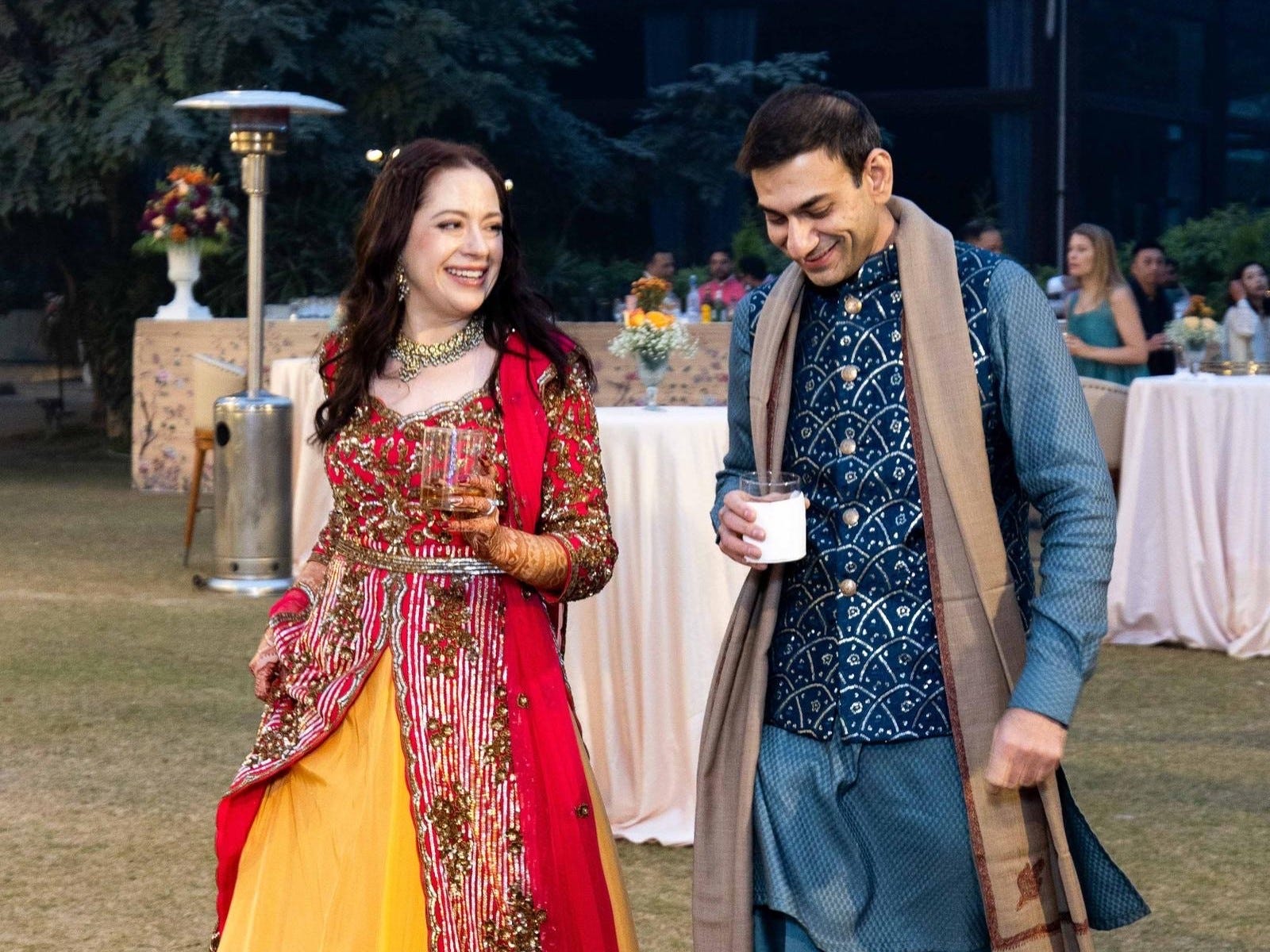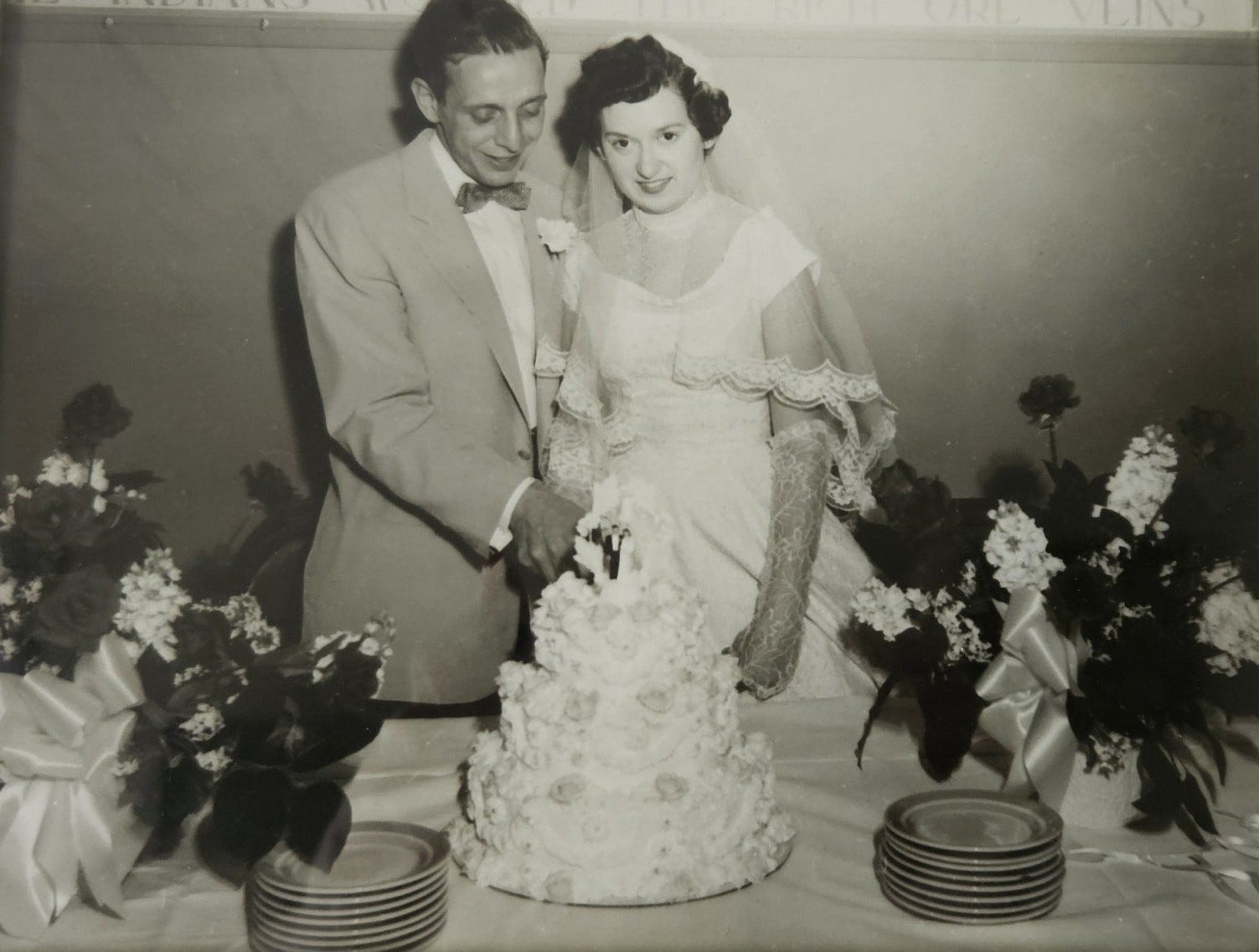
Courtesy of the author
My maiden name is Khorey. Last year, I married a man whose last name is Khanna. A few weeks after the wedding, I was chatting about it with a couple of women from my team at work.
“What about your name?” One asked. She was about to get married herself, and these questions were top of mind. “Are you going to hyphenate or what?”
“Well, my full first name is actually Katherine with a K,” I said, trying to keep it subdued. “So I don’t think that would be a good idea.”
It took a second, and then they got it. My initials would be KK-K.
I always planned to hyphenate when I got married
Years ago, when this question was hypothetical, hyphenating my name once I was married seemed like the right and only choice. I wanted to keep my last name. Khorey is a spelling unique to my family, and I felt the need to help carry it forward.
Khorey represented a lot of family history. It also belonged to me. My grandparents on the Khorey side had married across immigrant groups at a time and place where that was uncommon. Growing up, I often felt my grandmother’s Slovak culture got lost in the Syrian family shuffle, to say nothing of my mother’s family from a completely different part of the world. Keeping Khorey seemed like a way to keep every person and place I’d come from, and myself as well.

Courtesy of the author
At the same time, there was no question that I wanted to adopt my future husband’s name as well. That name would represent his history and identity: getting married would merge that with mine. Adopting his name would seal that, signal it to the world, and ensure we always kept him as well.
I thought hyphenating would be the best solution. Even if my name and initials turned out to be a little unwieldy, as I wouldn’t give up my middle name either, I could accept that tradeoff.
Then I grew up and fell in love with someone whose last name also began with “K”. At least it’s been nice to keep my monogram.
Sometimes I have to be strategic with my signature
Cassie has been my nickname since birth. Thanks to my parents’ preference, it’s always been spelled with a “C”. By adopting it professionally early in my career, I saved myself a lot of trouble.
Now I can freely use the LinkedIn interface to display “Cassie Khanna (Khorey)” on my profile, keeping the recognition I’ve built as Khorey while making my name change clear and not evoking a founding hate group. I can do the same on my résumé and in other settings where I’m Cassie first.
Sometimes, I can’t avoid it. I now feel the need to say, “Wow, that’s unfortunate,” to whoever has to read off my first, maiden, and married names to prove my ID at Walgreens. It’s OK, though. People know I didn’t do it on purpose.
I’m happy with the name I chose
I had to make a choice when I got married, and I did. Legally, I changed my name to my husband’s, because that was what I wanted to do. It doesn’t diminish me; it adds to both of us, just like it added to the women in my family before me, who are not lost now and truly never were.
Together, we are a mashup of cultures, races, and religions, almost none of which, incidentally, would be KKK-approved.
It’s us. It’s all of us, with our families, histories, and identities combined. That’s what Khanna means today. It will always mean Khorey, too. And that’s enough.
The post I wanted to hyphenate my last names once married. I realized it’d be incredibly offensive. appeared first on Business Insider.




